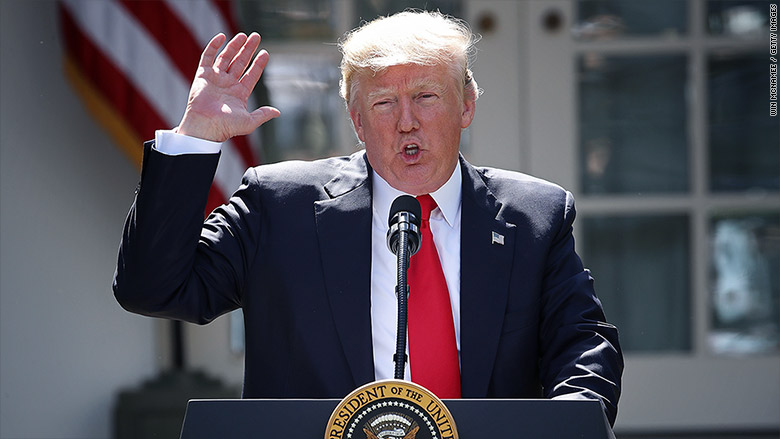Trump's FDA Policies: Positive Implications For Biotech Investment

Table of Contents
Deregulation and Accelerated Drug Approvals
The Trump administration prioritized deregulation and faster drug approvals, aiming to streamline the process and boost innovation. This initiative had significant ramifications for biotech investment.
Right-to-Try Initiative
The "Right-to-Try" initiative aimed to give terminally ill patients access to experimental treatments that hadn't completed the full FDA approval process. While not directly impacting the approval process itself, it created a pathway for faster feedback on experimental drugs. This accelerated feedback loop could prove invaluable for biotech companies, allowing them to refine drug development strategies and potentially reduce the financial burden of lengthy and costly clinical trials.
- Implications for smaller biotech firms: Reduced financial pressure during the trial phase allows smaller firms to compete more effectively with larger pharmaceutical companies.
- Ethical considerations and potential risks: Balancing patient access to potentially life-saving treatments with the need for robust safety testing remains a crucial ethical challenge.
Streamlined Approval Processes
The administration implemented policies intended to accelerate the FDA approval process for new drugs and biologics. This aimed to shorten the time between drug discovery and market launch, increasing the return on investment for biotech companies.
- Examples of specific policies: This included changes to review timelines, increased use of breakthrough therapy designations, and a greater emphasis on real-world evidence in clinical trials.
- Impact on market entry timelines and investor confidence: Faster approvals translate to quicker market entry, leading to higher returns and increased investor confidence in the biotech sector.
Emphasis on Innovation
The Trump administration placed a strong emphasis on fostering innovation within the biotech sector. This commitment manifested in various supportive policies.
- Examples of supportive policies: Increased funding for research initiatives, tax incentives for biotech companies, and a more collaborative approach between the FDA and industry stakeholders all encouraged investment in novel therapies.
- Incentives for investment in novel therapies: These supportive measures created a climate where investment in high-risk, high-reward technologies like gene therapy and personalized medicine became increasingly attractive.
Increased Funding and Investment in Biomedical Research
Increased government funding is a critical catalyst for biotech investment. The Trump administration's approach to budgeting had a tangible impact.
Budget Allocations
While not consistently increasing across all areas, the Trump administration's budgets allocated significant funding to biomedical research, compared to previous administrations.
- Specific figures and comparisons: Analyzing specific budget figures across different years reveals a positive trend in funding certain crucial areas of biomedical research. (Note: Specific figures would need to be inserted here, referencing reliable government data sources).
- Correlation between increased funding and heightened biotech investment: Increased public funding generally stimulates private investment, creating a virtuous cycle of innovation and growth.
Public-Private Partnerships
The administration actively encouraged and facilitated public-private partnerships to accelerate research and development.
- Examples of successful collaborations: These collaborations often leverage the expertise and resources of both government agencies and private companies, leading to faster and more efficient drug development. (Specific examples would need to be inserted here).
- Role of these partnerships in attracting private investment: Successful partnerships reduce risk for private investors and create a more attractive environment for investment in promising biotech ventures.
Impact on Specific Biotech Sectors
Trump's FDA policies had a differentiated impact across various biotech sectors.
Gene Therapy
The gene therapy sector saw significant advancements during this period.
- Specific regulatory changes: Changes in the FDA's regulatory framework for gene therapy paved the way for faster approvals and increased investment in this rapidly evolving field. (Specific examples of approvals or regulatory changes would need to be inserted here.)
- Potential for future growth and investment: The potential of gene therapy to treat previously incurable diseases has made it a highly attractive sector for investment.
Oncology
The oncology sector also benefitted from the Trump administration's policies.
- Specific regulatory changes: Changes to the approval processes for cancer drugs and therapies accelerated the development and market entry of life-saving treatments. (Specific examples of approvals or regulatory changes would need to be inserted here.)
- Potential for future growth and investment: The ongoing battle against cancer continues to drive significant investment in research and development of novel oncology treatments.
Conclusion
Trump's FDA policies, characterized by deregulation, increased funding, and a focus on innovation, fostered a significantly more favorable environment for biotech investment. These policies positively impacted various sectors, from gene therapy to oncology, accelerating drug approvals, reducing regulatory hurdles, and increasing investor confidence. The streamlined approval processes and emphasis on public-private partnerships stimulated growth and attracted significant investment into innovative therapies. To capitalize on this momentum, further research into specific investment opportunities within the biotech sector informed by the positive implications of Trump's FDA policies, and exploration of "biotech investment under Trump's FDA policies" or "the future of biotech investment post-Trump era" are strongly encouraged. Consider delving into specific policy documents and investment strategies to make informed decisions in this dynamic and promising field.

Featured Posts
-
 Anchor Brewing Company To Shutter A Legacy Concludes After 127 Years
Apr 23, 2025
Anchor Brewing Company To Shutter A Legacy Concludes After 127 Years
Apr 23, 2025 -
 Zuckerberg And Trump A New Era For Tech And Politics
Apr 23, 2025
Zuckerberg And Trump A New Era For Tech And Politics
Apr 23, 2025 -
 Trumps Economic Claims Vs Reality A Data Driven Investigation
Apr 23, 2025
Trumps Economic Claims Vs Reality A Data Driven Investigation
Apr 23, 2025 -
 La Fires Fuel Landlord Price Gouging A Selling Sunset Star Speaks Out
Apr 23, 2025
La Fires Fuel Landlord Price Gouging A Selling Sunset Star Speaks Out
Apr 23, 2025 -
 Why Pope Francis Signet Ring Will Be Destroyed After His Death
Apr 23, 2025
Why Pope Francis Signet Ring Will Be Destroyed After His Death
Apr 23, 2025
